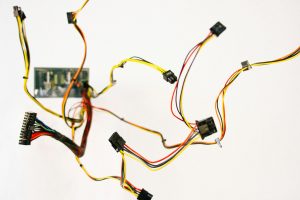Smart vs. Traditional Appliances: Is the Upgrade Worth It in 2025?
As technology continues to advance at a rapid pace, it seems like there’s a new “smart” version of everything coming out. From smartphones to smart homes, it’s clear that the future is becoming more and more connected. This also includes our everyday appliances – refrigerators, washing machines, and even light bulbs are now being designed with “smart” features. But with all this new technology, it’s easy to wonder – is it really worth it? In this article, we’ll take a deep dive into the world of smart vs. traditional appliances and determine if the upgrade is truly worth it in 2025.
The Rise of Smart Appliances
Smart appliances have been gaining popularity over the past few years, and for good reason. These appliances are designed with internet connectivity and advanced technology, allowing them to be controlled and monitored remotely through a smartphone or tablet. This means that you can turn off your oven from your office, adjust your thermostat from your bed, and even receive alerts when your laundry is done – all without ever leaving your seat.
The Benefits of Smart Appliances
One of the main advantages of smart appliances is their convenience. The ability to control and monitor them remotely means that you can manage your household tasks more efficiently and with ease. No more worrying if you left the oven on or forgetting to turn off the lights – smart appliances give you complete control at your fingertips.
In addition to convenience, smart appliances are also designed to be more energy-efficient. With features like energy usage tracking and smart scheduling, you can ensure that your appliances are running only when needed, resulting in lower utility bills and a reduced environmental footprint.
Traditional Appliances: Tried and True
On the other hand, traditional appliances have been a staple in households for decades. They may not come with all the bells and whistles of their smart counterparts, but they still get the job done. Plus, traditional appliances are often more affordable, making them a more appealing option for those on a budget.
The Drawbacks of Traditional Appliances
While traditional appliances may be more budget-friendly, they do have some drawbacks. For starters, they lack the convenience and energy-efficient features that smart appliances offer. This means that you may need to physically be present to control and monitor your appliances, and they may consume more energy than necessary due to their lack of advanced technology.
In addition, traditional appliances are also becoming outdated. As more and more aspects of our lives become connected, it’s becoming increasingly clear that traditional appliances may not be able to keep up with the demands of the future. This means that if you choose to stick with traditional appliances, you may need to upgrade again in a few years.
The Verdict: Is the Upgrade Worth It in 2025?
So, is upgrading to smart appliances really worth it in 2025? The answer ultimately depends on your personal preference and budget. While smart appliances offer convenience and energy efficiency, they also come at a higher cost. On the other hand, traditional appliances may be more budget-friendly, but they lack the advanced features that are becoming increasingly important in our interconnected world.
In the end, it’s safe to say that the upgrade to smart appliances is worth it for those who value convenience and energy efficiency over cost. However, if you’re on a tight budget or don’t mind the extra effort of controlling and monitoring your appliances manually, sticking with traditional appliances may be a better option for you.
The Future of Appliances
As we approach 2025, it’s clear that smart appliances will continue to evolve and become more advanced. With the rise of smart homes and the increasing demand for connected devices, it’s safe to say that traditional appliances may soon become a thing of the past. So, whether you choose to upgrade to smart appliances now or wait a few more years, it’s clear that the future of appliances is a connected one.











